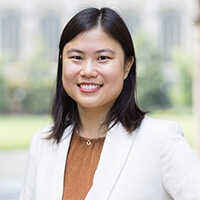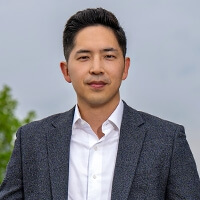In a politically polarized time—and a time where public schools are embroiled in culture wars and face existential threats—Professor Elise Boddie encourages us to remember the lessons of the US Supreme Court’s landmark Brown v. Board of Education decision.
In delivering the American Educational Research Association’s annual Brown lecture at Howard University recently, she noted that many people were threatened by the court’s ruling that racially segregated schools were unconstitutional.
But, she said, “We also saw light—when ordinary people embraced the possibility of a different America.”
Boddie, the James V. Campbell Professor of Law, is an expert on racism and education based on her experience as a scholar and practitioner. Her research explores the regulation and production of race in spatial contexts and dynamic systems that perpetuate racial inequality.
During her previous tenure at Rutgers University Law School, she launched the Inclusion Project, which engaged with communities, students, faith leaders, educators, and researchers in a multisector initiative to build equitable education systems in New Jersey public schools.
Earlier in her career, she worked in several capacities at the NAACP Legal Defense and Educational Fund Inc., including director of litigation and director of education. During her time there, she litigated affirmative action and school desegregation cases in federal district courts and in federal courts of appeals.
In delivering the lecture at Howard University, which she titled, “Brown and the Democratic Ideals of Equality, Justice, and Freedom,” Boddie talked about the people involved in the nation’s most famous desegregation case.
“Their stories are important because they remind us not only of where we have been but also of the journey this country has yet to take, the roads it has yet to travel, and the struggles it has yet to face,” she said.
Boddie did talk about the lawyers who wove together a litigation strategy for the five cases that were consolidated into Brown v. Board of Education and the brilliance of their arguments before the US Supreme Court, which led to the favorable ruling.
But, she said, “It’s also important to remember that there were people fighting courageously on the ground to secure better educational opportunities for their children. And they did so without the protection of law.”
Today, she said, people often focus on the failures of the Brown decision. More than 100,000 Black teachers lost their jobs as a result of desegregation, a loss from which the system has never recovered, Boddie noted.
Also, true integration was never fully actualized.
“Indeed, 70 years after Brown, many schools are still intensely racially segregated,” Boddie said.
But she pointed to several examples where Brown laid the foundation for change, including the Civil Rights Acts of 1964, the Voting Rights Act of 1965, and the Educational Opportunities Act of 1974. In addition, Brown has been a rallying point for others seeking equal protection, such as religious groups, immigrants, and the LGBTQ+ community.
And today, perhaps more urgently than ever, Brown provides a reminder of the importance of being with those who are different from us.
“Brown teaches us about the importance of proximity—the power of association and the importance of engaging with people you don’t know and people you disagree with,” Boddie said. “And it teaches us about the importance of trying to understand them and then hoping that they will do the same.”
She likened segregation to a canary in a coal mine, a portend with a wide-reaching ripple effect.
“Entrenched separation by race, and class, and other axes of difference fosters stereotypes and sows distrust and misunderstanding in ways that make it all too easy to assume how ‘other people are’ and to imagine the worst of intentions.
“For a moment in time, Brown showed us a different way,” she concluded. “Perhaps one day we can walk that path again.”
About the Brown Lecture in Education Research
The Annual Brown Lecture in Education Research illuminates the important role of research in advancing understanding of equality and equity in education. The lectureship was inaugurated in 2004 to commemorate the 50th anniversary of the landmark Brown v. Board of Education decision, in which the US Supreme Court took scientific research into account. Each year, a distinguished scholar notable for producing significant research related to equality in education is invited to give this public lecture in Washington, DC.







